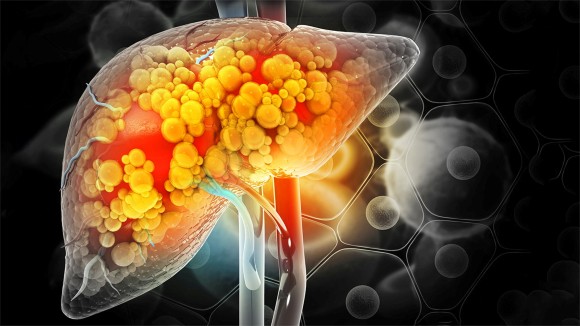 Alina M. Allen, MD, is the founder and Director of NAFLD Clinic and an Associate Professor of Medicine at Mayo Clinic in Rochester, Minnesota, USA. She is a physician scientist with an NIH-funded research program focused on improving outcomes in patients with nonalcoholic fatty liver disease (NAFLD). Her areas of expertise include noninvasive imaging biomarker development for NASH; individualized prediction of future development of cirrhosis and complications using state-of-the-art imaging technologies; population-based research using large data sets to disentangle the epidemiologic associations between NAFLD, cirrhosis, metabolic syndrome, cardiovascular disease and cancer risk. She is a co-principal investigator of the Data Analytics and AI for Advanced Liver Disease at Mayo Clinic, where she uses artificial intelligence methods to develop predictive models in NAFLD and disease trajectories. Dr. Allen is an Associate Editor of Hepatology and a member of the NAFLD Special Interest Group within the American Association for the Study for Liver Diseases.
Alina M. Allen, MD, is the founder and Director of NAFLD Clinic and an Associate Professor of Medicine at Mayo Clinic in Rochester, Minnesota, USA. She is a physician scientist with an NIH-funded research program focused on improving outcomes in patients with nonalcoholic fatty liver disease (NAFLD). Her areas of expertise include noninvasive imaging biomarker development for NASH; individualized prediction of future development of cirrhosis and complications using state-of-the-art imaging technologies; population-based research using large data sets to disentangle the epidemiologic associations between NAFLD, cirrhosis, metabolic syndrome, cardiovascular disease and cancer risk. She is a co-principal investigator of the Data Analytics and AI for Advanced Liver Disease at Mayo Clinic, where she uses artificial intelligence methods to develop predictive models in NAFLD and disease trajectories. Dr. Allen is an Associate Editor of Hepatology and a member of the NAFLD Special Interest Group within the American Association for the Study for Liver Diseases.
 Olivier Govaere, PhD, is a Tenure Track Professor at the Translational Cell & Tissue Research lab, Department of Imaging and Pathology at the KU Leuven in Belgium. He obtained his PhD in Molecular and Stem Cell Medicine at the KU Leuven, investigating the role of hepatic progenitor cells in liver regeneration and carcinogenesis. His postdoctoral work at Newcastle University in the UK, aimed to understand the pathophysiology of non-alcoholic fatty liver disease and to examine the determinants of individual risk for disease progression by using a "multi-omics" translational-science approach. His current work focuses on immunometabolism in metabolic associated fatty liver disease and spatial profiling.
Olivier Govaere, PhD, is a Tenure Track Professor at the Translational Cell & Tissue Research lab, Department of Imaging and Pathology at the KU Leuven in Belgium. He obtained his PhD in Molecular and Stem Cell Medicine at the KU Leuven, investigating the role of hepatic progenitor cells in liver regeneration and carcinogenesis. His postdoctoral work at Newcastle University in the UK, aimed to understand the pathophysiology of non-alcoholic fatty liver disease and to examine the determinants of individual risk for disease progression by using a "multi-omics" translational-science approach. His current work focuses on immunometabolism in metabolic associated fatty liver disease and spatial profiling.
 Monica Tincopa, MD, MSc, is a transplant hepatologist and clinical researcher. Dr. Tincopa completed fellowships in gastroenterology and transplant hepatology at University of Michigan. She completed an internal medicine residency at Johns Hopkins School of Medicine in Baltimore where she also earned her medical degree. Dr. Tincopa also obtained a master's degree in clinical research from University of Michigan. She is a member of the American Association for the Study of Liver Diseases (AASLD), the American Society of Transplantation (AST), the American Gastroenterological Society (AGA) and the American College of Gastroenterology (ACG). Her research is focused on nonalcoholic fatty liver disease (NAFLD) and liver transplantation.
Monica Tincopa, MD, MSc, is a transplant hepatologist and clinical researcher. Dr. Tincopa completed fellowships in gastroenterology and transplant hepatology at University of Michigan. She completed an internal medicine residency at Johns Hopkins School of Medicine in Baltimore where she also earned her medical degree. Dr. Tincopa also obtained a master's degree in clinical research from University of Michigan. She is a member of the American Association for the Study of Liver Diseases (AASLD), the American Society of Transplantation (AST), the American Gastroenterological Society (AGA) and the American College of Gastroenterology (ACG). Her research is focused on nonalcoholic fatty liver disease (NAFLD) and liver transplantation.
 Amir Zarrinpar, MD, PhD, is a physician scientist whose primary research is focused on the interactions of circadian biology, gut physiology and gut microbiome in the genesis of obesity and metabolic syndrome and involves manipulations of gut luminal environment (both content and bacteria) to disclose this link. He is also a board-certified gastroenterologist with an interest in obesity and NAFLD/NASH. He obtained AB degree in cognitive neuroscience from Harvard University and MD/PhD from UC San Diego, and residency and fellowship at UC San Diego. During his postdoctoral training at the Salk Institute, he showed time-restricted feeding restores normal circadian regulation and prevents adverse effects of diet-induced obesity, that the gut microbiome is circadian and its cyclical fluctuations are important for metabolism, and antibiotic-induced microbiome depletion alters systemic metabolic homeostasis via effects on gut signaling and metabolism. After establishing his own laboratory as Assistant Professor of Medicine at UC San Diego in 2017, he began demonstrating that genetically engineered native gut bacteria achieve targeted manipulations of metabolism and alleviate a pathologic phenotype in mice. He is a recipient of AASLD Liver Scholar Award and AGA Microbiome Junior Investigator Award. His research has been supported by a NIDDK/NIH, NHLBI/NIH, NIMH/NIH, AFAR, Prevent Cancer Foundation, NPKUA, and the AHA.
Amir Zarrinpar, MD, PhD, is a physician scientist whose primary research is focused on the interactions of circadian biology, gut physiology and gut microbiome in the genesis of obesity and metabolic syndrome and involves manipulations of gut luminal environment (both content and bacteria) to disclose this link. He is also a board-certified gastroenterologist with an interest in obesity and NAFLD/NASH. He obtained AB degree in cognitive neuroscience from Harvard University and MD/PhD from UC San Diego, and residency and fellowship at UC San Diego. During his postdoctoral training at the Salk Institute, he showed time-restricted feeding restores normal circadian regulation and prevents adverse effects of diet-induced obesity, that the gut microbiome is circadian and its cyclical fluctuations are important for metabolism, and antibiotic-induced microbiome depletion alters systemic metabolic homeostasis via effects on gut signaling and metabolism. After establishing his own laboratory as Assistant Professor of Medicine at UC San Diego in 2017, he began demonstrating that genetically engineered native gut bacteria achieve targeted manipulations of metabolism and alleviate a pathologic phenotype in mice. He is a recipient of AASLD Liver Scholar Award and AGA Microbiome Junior Investigator Award. His research has been supported by a NIDDK/NIH, NHLBI/NIH, NIMH/NIH, AFAR, Prevent Cancer Foundation, NPKUA, and the AHA.

